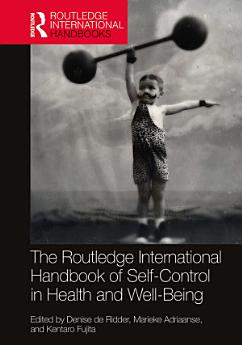Routledge International Handbook of Self-Control in Health and Well-Being
About this ebook
The Routledge International Handbook of Self-Control in Health and Wellbeing is the first comprehensive handbook to map this burgeoning area of research by applying it to health outcomes and personal well-being. Including contributions from leading scholars worldwide, the book incorporates new research findings that suggest that simply inhibiting our immediate impulses isn’t the whole story; there may be more options to improve self-control than simply by suppressing the ego.
Divided into six coherent sections, the book provides an overview of the research base before discussing a range of interventions to help improve self-control in different contexts, from smoking or drinking too much to developing self-control over aggression or spending money. The only definitive handbook on this far-reaching topic, this essential work will appeal to researchers and students across health and social psychology, as well as related health sciences.
About the author
Denise de Ridder received her Ph.D. in psychology from Utrecht University in 1991. Her research interests focus on self-regulation processes in health and consumer behavior, in particular how people deal with immediate temptations that may threaten their long-term goals.
Marieke Adriaanse received her Ph.D. in psychology from Utrecht University in 2010. Her research is concerned with the interplay between conscious and nonconscious processes on health behavior. For example, she investigates how people react when they are confronted with nonconsciously activated behavior, as well as the potential of overruling such automatic behaviors (habits) through the use of self-regulation strategies.
Kentaro Fujita received his A.B. summa cum laude in psychology from Harvard College in 2000, and his Ph.D. in psychology from New York University in 2006. His research interests focus on why despite possessing remarkable intelligence and reasoning capacity people often make decisions and behave in ways that undermine their valued goals and objectives.




